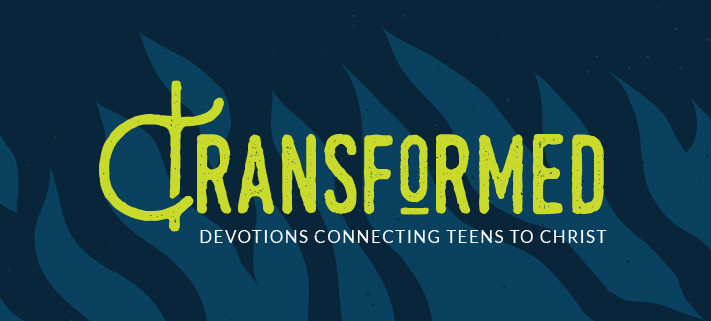The Least Qualified Are the First Sent – February 9, 2025
One key truth: You are covered—head to toe—by God’s grace. And his love doesn’t just cover you: his love qualifies you.
I saw the Lord, high and exalted, seated on a throne; and the train of his robe filled the temple. Above him were seraphim, each with six wings: With two wings they covered their faces, with two they covered their feet, and with two they were flying. And they were calling to one another:
“Holy, holy, holy is the Lord Almighty;
the whole earth is full of his glory.”
At the sound of their voices the doorposts and thresholds shook and the temple was filled with smoke.
“Woe to me!” I cried. “I am ruined! For I am a man of unclean lips, and I live among a people of unclean lips, and my eyes have seen the King, the Lord Almighty.”
Then one of the seraphim flew to me with a live coal in his hand, which he had taken with tongs from the altar. With it he touched my mouth and said, “See, this has touched your lips; your guilt is taken away and your sin atoned for.”
Then I heard the voice of the Lord saying, “Whom shall I send? And who will go for us?”
And I said, “Here am I. Send me!”
Isaiah 6:1-18
The Least Qualified Are the First Sent
Do you like going to the gym? Maybe you do, and maybe you don’t.
Maybe you like exercising—you just don’t like the feeling you get when you walk into the gym and you’re surrounded by people whose bodies are as toned and sculpted as Greek statues. You don’t like the feeling you get when you’re struggling to bench press as much as the “body builder” next to you is curling. You don’t like the feeling you get when the elliptical has exhausted you after just five minutes and the woman next to you has been on hers for nearly fifteen minutes and barely broken a sweat. We don’t like the feeling of not measuring up—where you say to yourself, “Maybe I shouldn’t be here. Maybe I don’t belong here.”
Isaiah knew the feeling.
God gave him a vision of fiery angels, billows of smoke, and the LORD Almighty enthroned in radiant splendor. This vivid, awe-filling vision would humble even the haughtiest of the LORD’s prophets. It is in this vision that the LORD Almighty calls Isaiah, son of Amoz, to serve him as his prophet. And as Isaiah is brought into God’s “office,” the first voice he hears isn’t that of the LORD, but of choirs of angels flying throughout the temple. And these angels describe God as, not just holy, but three times holy—absolutely holy. The choirs are so loud, the temple is shaking, and smoke is billowing everywhere. “Woe to me!” Isaiah cried, convinced he would drop dead where he stood—because he knew that no sinner could see God’s face and live. Isaiah felt like he shouldn’t be there—like he didn’t belong there.
You would be very wise to cry out “Woe to me” every morning when you wake up and every night before you go to sleep. We would be wise to we say it together. Don’t ever stop confessing sin, don’t ever stop fearing sin, and don’t ever stop hating sin. “The soul who sins is the one who will die ” (Ezekiel 18:4). There it is: cold metal grating on hard steel. The tragic truth is this: Sin kills… every sin kills… my sin kills me and your sin kills you!
But this vision doesn’t end there. Isaiah continues, “Then one of the seraphim flew to me with a live coal in his hand, which he had taken with tongs from the altar. With it he touched my mouth and said, ‘See, this has touched your lips; your guilt is taken away and your sin atoned for.’” The verbs that describe what this divine fire does as it touches Isaiah’s lips paint amazing pictures of God’s love for you. The first: “Your guilt is taken away.” It’s a picture of God removing the immense, debilitating burden of guilt from you forever. The second: “Your sin is atoned for.” It’s the picture of your sin being covered forever—that there’s Someone who stands between you and the unrelenting holiness of God—Someone who makes peace between you and God so you can stand before him forever.
That Someone is Jesus.
He touches our unclean lips with the tip of the cross—the symbol of our forgiveness. He declares, “You are no longer a sinner, but a saint!” Jesus satisfied God’s justice by embodying the needed atonement to cover over your sins. Your Savior declares you clean! Your God qualifies you to confidently stand before him.
You might not feel like you belong at the local gym—but never doubt your belonging to God in Christ. Covered head to toe in his grace, God asks, “Whom shall I send? And who will go for us?” Equipped by his Holy Spirit—where you are, as you are—answer his call, “Here am I. Send me!”
Prayer:
Lord Jesus, in your love for us, you would die our death on a cross and credit us with the gift of your holiness. Thank you for your boundless mercy and gracious gift of forgiveness. Because of you and you alone, we not only have confidence to stand before you on the day you take us to heaven; because of you, we have confidence to dynamically live our lives of faith before the world. In your name we pray. Amen.

